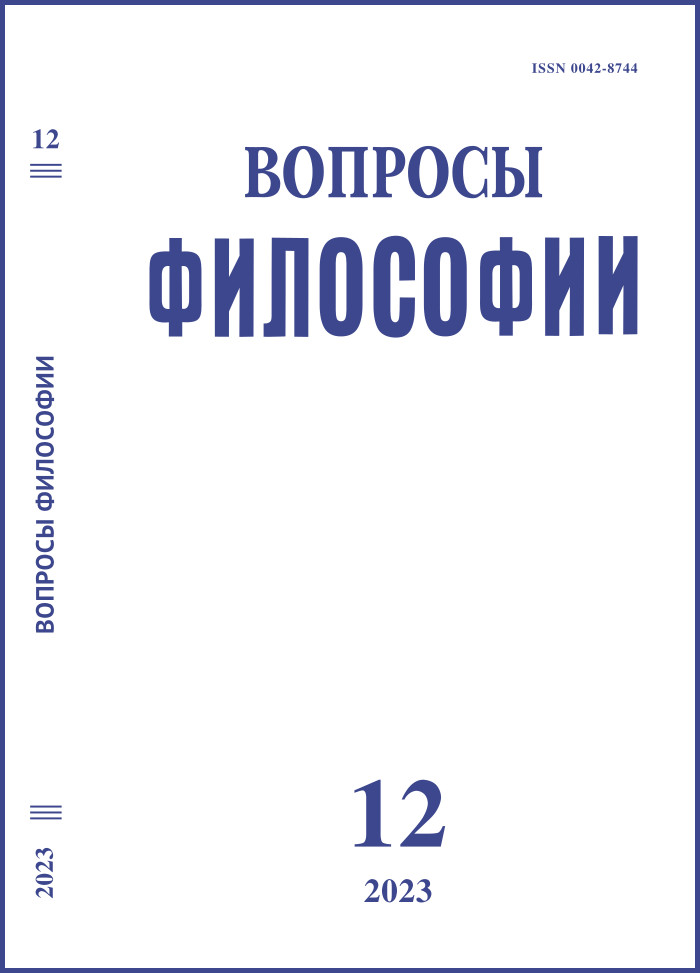Methodology: Historical Insight and a Fresh Start
DOI:
https://doi.org/10.21146/0042-8744-2023-12-103-113Keywords:
methodology, thinking, methods, creativity, regulation, isolation, culture, reconstruction, constitution, practice.Abstract
The article discusses the genesis of the methodology and a new situation that allows us to talk about the need for a new start of the methodology. The author shows that the concept of methodology began to take shape only in the New Age, when the concept of building a science of thinking was formulated, which makes it possible to obtain knowledge and schemes that can be used as means to guide (the idea of management in the broadest sense) the thought and creativity of the individual. The situation of the formation of methodology in the culture of the new time is analyzed, it began to develop in several directions: as a doctrine of methods and a doctrine of thinking, as a heuristic, if the personality and its creativity are emphasized, as a universal philosophy, if the control of thinking is absolutized in the form of a special nature. The relationship between methodology and phenomenology is specially considered (the latter refers to situations of a new start of thinking, in addition, comprehends the control of thinking in the ontology of consciousness and creativity). The separation of methodology into an independent philosophical discipline at the beginning of the 20th century is discussed; here a significant contribution was made by Georgy P. Shchedrovitsky and his school. But the isolation of the methodology has both positive and negative sides (the latter is considered by Alexandr P. Ogurtsov). An analysis of the detailed case (Galileo’s work) allowed the author to separate two types of thinking – “creative” (thinking as creativity) and “conceptual” (as a correct mental discourse). On the basis of this distinction, a new start of methodology is characterized: criticism and analysis of historical forms of methodology (“pre-reflexive”, panmethodology, in different disciplines and practices), the study of these two types of thinking and
two directions of methodology (their clearer breeding, genesis, reconstruction of the formation of each), comprehension and analysis of modern socio-cultural situations and challenges that urgently require the formation of new types of thinking and, accordingly, directions of methodology, substantiation and critical analysis (including the limits and possibilities) of the methodology itself.

